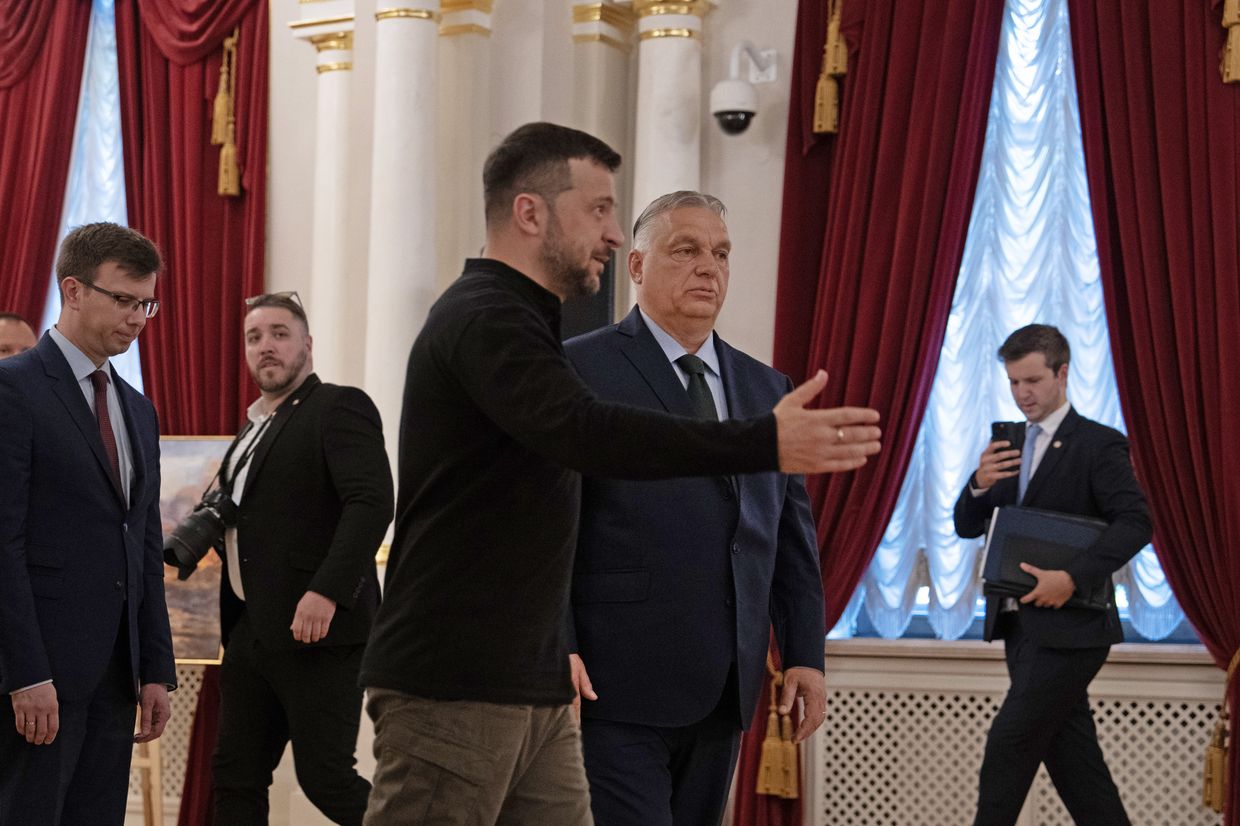EU members blasted Orban over rogue diplomacy but pitched no ways to rein him in, media reports

EU ambassadors lambasted Hungary during a meeting in Brussels on July 10 over the Hungarian prime minister's so-called "peace mission" that included visits to Russia and China, undisclosed European diplomats told the media.
Viktor Orban visited Kyiv, Moscow, and Beijing in what he presented as an effort to promote a ceasefire and peace negotiations between Russia and Ukraine only days after Hungary took over the rotating presidency of the Council of the EU.
Orban's meeting with Russian President Vladimir Putin sparked anger across the EU, with European leaders stressing that the Hungarian prime minister's venture does not represent the bloc in any way.
During a subsequent meeting in Brussels, representatives of 25 EU member states—except for Budapest-friendly Slovakia, which was absent—"expressed wide dissatisfaction or anger at how the Hungarian presidency is unrolling," Euroactiv wrote, citing the diplomats.
"It's unprecedented that the presidency would be reprimanded in such a way by all the others," an undisclosed senior official told Politico.
"Hungary tried to argue that the visits were strictly bilateral, only to scope out the feasibility and conditions for a ceasefire," the Hungarian envoy reportedly tried to argue.
Orban previously acknowledged that he does not have the EU's mandate to mediate peace talks and that his efforts are purely bilateral. In spite of this, public materials connected to the visit displayed Hungary's EU presidency logo, creating a degree of ambiguity.
EU ambassadors were skeptical about the argument and stressed that the "rotating presidency has only a limited role in the external representation of the EU."
In spite of the extensive criticism, no decision was taken on how to prevent such ventures in the future, "but there will be follow-ups," said Rikard Jozwiak, Radio Free Europe/Radio Liberty's Brussels correspondent.
"In reality, the options are limited," an official told Politico, pointing out that limiting or postponing Hungary's presidency is difficult now as it is already underway.
Some envoys nevertheless threatened with "practical consequences," for example, by boycotting ministerial meetings organized by Hungary's presidency.
Hungary is widely seen as the most Kremlin-friendly country within the EU, and its past conduct has sparked ire among its European partners on multiple occasions. Budapest has repeatedly obstructed sanctions against Russia, Kyiv's accession talks, and aid for Ukraine.












